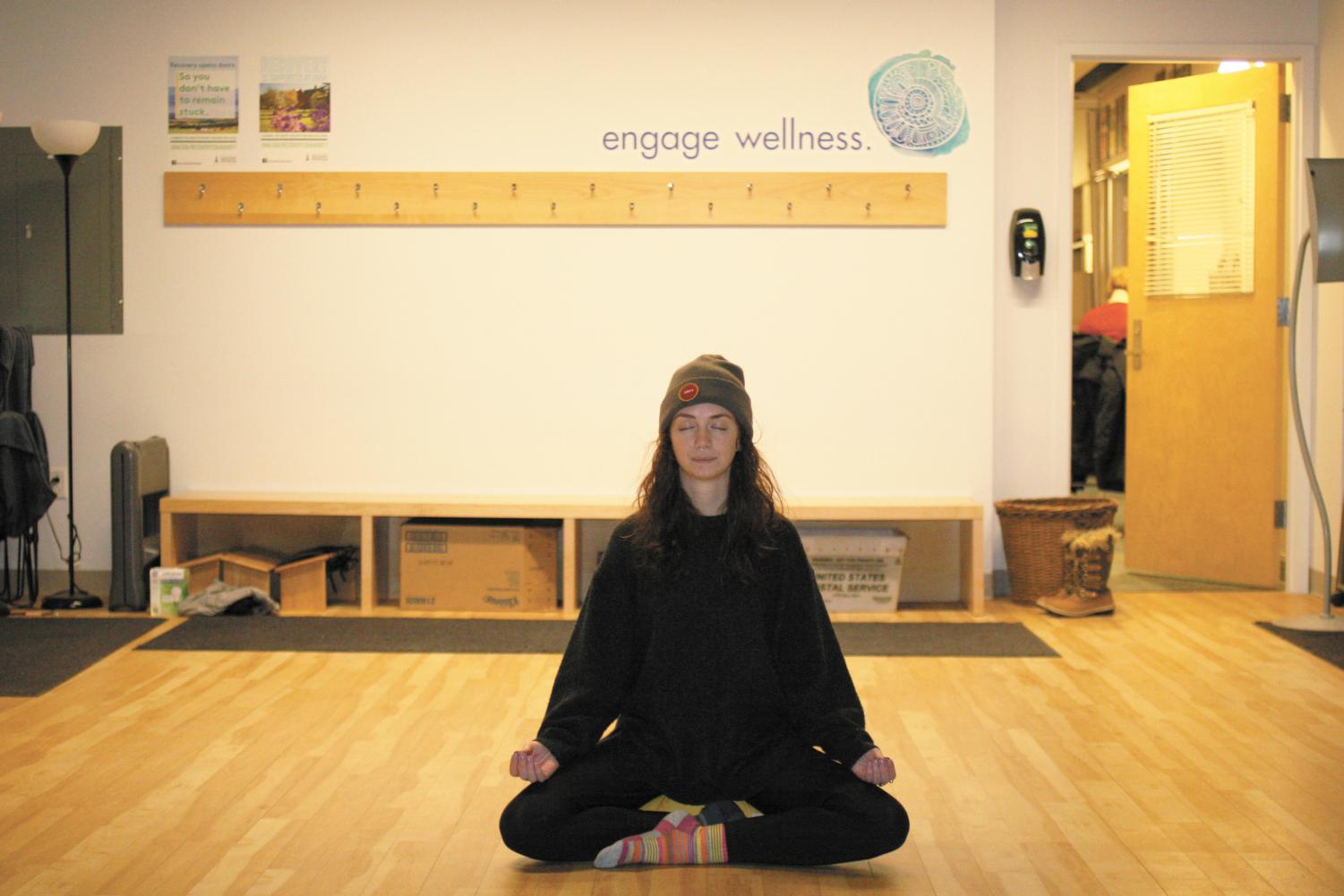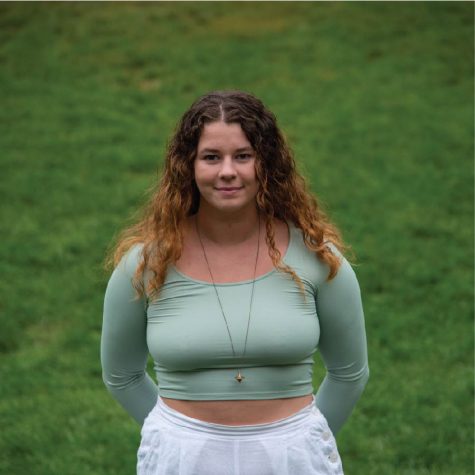Students talk meditation on campus
February 22, 2019
The walls of most dorms are covered with posters, candles are at risk of confiscation and the shouts of the next door neighbors playing Super Smash Bros make meditation seem like an impossible routine to develop in the college years.
Despite this, students and faculty at UVM find ways to reap the benefits of meditation.

“I’ve been meditating for 20 years and I find that my baseline happiness is higher as a result,” said Lindsey Foreman, the mindfulness and resilience educator at Living Well.
Foreman stressed that meditation does not have to be practiced while sitting, emphasizing the feasibility of making time .
“Good meditation cultivates your quality of attention,”she said. “This is can be practiced when you’re sitting but also for when you are in class, walking or spending time with your friends.”
Junior Sarah Klimek said she knows that a lot of people have misconceptions about meditation.
“A lot of people think meditation requires a whole set up and enlightenment-like state but really it’s just getting in tune to what your body wants and needs,” she said.
Klimek said she finds a few minutes each day to meditate in her dorm room.
“There’s no exact feeling or end goal of it, nor does it have to constitute a change in lifestyle or copious amounts of time,” she said.
Sometimes a daily meditation can be incorporated even in a walk to class, a creative way to maximize on time.
“I love to stop at the Interfaith Center and walk the labyrinth as a meditation if I have time on my walk to class,” first-year Sienna DeVoe-Talluto said.
She finds that even a few moments of mindful meditation improves her quality of focus all day, especially when it comes to being present for her friends.
DeVoe-Talluto said she recommends substituting five minutes of screen time for five minutes of meditation. She aims to show the achievability of creating room for meditation, but also touches on a problematic aspect of smartphones.
Smartphones make it easy to avoid boredom, understimulation and idleness. However, they inhibit mindfulness by consistently transporting the user out of real time.
Most people will check Snapchat, listen to music or scroll through Instagram rather than simply observe their surroundings.
“My phone distracts me from taking time to experience the quiet realities of day to day life. Sometimes I feel like I need to be stimulated always and forget to take a deep breath,” first-year Konrad Osterwinter said.
There are ways to utilize your phone to counteract a tendency to be distracted. Apps such Headspace, Calm and Breathe & Think can act as tools that aid in guided breathing, tips for relaxation and more.
Living Well also has a plethora of free resources for those interested in meditation. Yoga and Mindfulness class meets every Wednesday from 12:10 p.m. to 12:50 p.m. at Living Well in the Davis Center. No equipment or experience is necessary, just bring yourself.
Meditation lessons can also be found at https://soundcloud.com/mindfulnessuvm as an introduction to the various techniques.
Meditation originated in ancient India approximately 5,000 years ago and is now recognized for improving several aspects of health.
It is recommended to help combat depression and anxiety as well as lower blood pressure and improve heart rate, according to Mayo Clinic.







